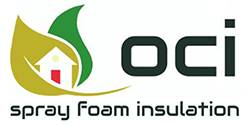Having spray foam insulation in your home should not be a barrier to obtaining a mortgage. Mortgage lenders typically focus on factors such as your credit score, income, debt-to-income ratio, and the appraised value of the property. Insulation type, including spray foam, is not typically a direct consideration for mortgage approval.
However, there are a few indirect ways in which the type of insulation may play a role:
- Appraisal Value:
- Energy-efficient features, including certain types of insulation like spray foam, can contribute to the overall energy efficiency and performance of a home. While this may not directly affect mortgage approval, it could influence the appraised value of the property.
- Energy Efficiency Programs:
- Some energy-efficient improvements, including certain types of insulation, may qualify for energy efficiency programs or incentives. While this won’t directly impact your mortgage, it could provide additional benefits or savings.
- Home Inspection:
- During the home inspection process, the type and condition of insulation may be assessed. While this is more relevant to the home buying process than the mortgage itself, any issues identified during the inspection may need to be addressed before finalizing the purchase.
It’s important to note that mortgage requirements and processes can vary by lender, so it’s recommended to consult with your chosen mortgage lender directly to understand their specific criteria and any considerations related to the property’s features.
If you have specific questions about how spray foam insulation may be perceived by mortgage lenders in your area, it may be beneficial to discuss your situation with a mortgage broker or loan officer who can provide guidance based on local practices and lender preferences.

Recent Comments